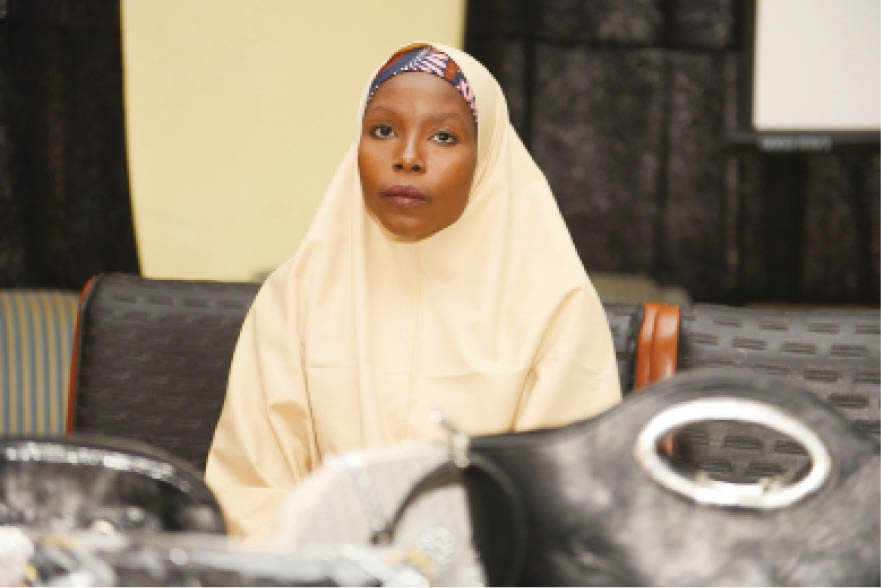‘How Mafita helped me become self-reliant’
Many young girls have been in limbo due to their inability to access education or acquire skills that will enable them to be self-reliant. Such young girls have resorted to a lot of vices that usually spelt doom in their lives. It is worrisome to see a young girl with no assistance to discover her […]

Malama Sa’adatu Gambo
Many young girls have been in limbo due to their inability to access education or acquire skills that will enable them to be self-reliant. Such young girls have resorted to a lot of vices that usually spelt doom in their lives. It is worrisome to see a young girl with no assistance to discover her potentials and a future to hope for.
However, Malama Sa’adatu Gambo is a young business woman trained to be involved in a male-dominated trade. It was gathered that, she got married very early, she became a mother at the age of 17. Sa’adatu is presently a mother and a widow.
According to her, she once saw her life falling apart as she couldn’t take control of her daily needs and the situation was occasioned by her parent’s inability to cater for her upkeep and that of her child from their little earnings.
“I am now 22 years old; I became a widow and a mother at a very young age. Many a times I find it very difficult to cope up with my daily needs. Life became so tensed and unbearable and my parent’s inability to supplement my upkeep from their little earnings worsened the situation. I watched as my whole life was drifting and falling apart.
“It was amidst that troubling situation that Mafita, an economic growth programme which is set to economically empower marginalised youth through skills training and local economic development support, came to my aid,” said Sa’adatu.
Malama Sa’adatu said she was trained on leather works under the tutelage of a Mafita-trained master craft person assigned to trained selected beneficiaries, adding that after acquiring the training she had excelled in her chosen trade so much so that she is now able to step down her skills, training more than eight teenage girls so far, three of whom are orphans.
Sa’adatu said presently, she makes a profit of not less than N3,000 on the average per week, adding that as soon as she completed acquiring her own leather works tools and equipment, especially sewing and grinding machines, her profit margin will increase.
She added that officials of Mafita have linked her up with a financial institution where she could get an interest-free loan to boost her trade. She said the officials of the programme has also linked her up with off takers of her products.
“I now make leather bags, ladies wallets and shoes. I do not want to sound proud but as you can see for yourself these leather products are as qualitative as those imported, thanks to Mafita programme that assisted me in discovering my real self. I now have a trade and as I mentioned earlier, I am training others to be self-reliant as I am,” Sa’adatu said.
According to Mafita team leader, Umar Nuhu Muhammad, Mafita programme is an economic growth programme funded by UKaid which is set to economically empower marginalised youth such as the Almajiris, girls from Islamiyya and Qur’anic education system, persons with disabilities, orphans and vulnerable children and early school leavers whose ages ranged from 15-24 with emphasis to girls.
He added that the empowerment of these marginalised youths is through skills training and local economic development support hence the name Mafita which, he said, is a Hausa word which literary means ‘a way out’.
Explaining further, he noted that a combination of poor vocational training infrastructure, lack of skills certification in the informal sector, poor micro and small enterprise incubation facilities, an absence of large-scale enterprises, and social exclusion of large segments of society have resulted in high unemployment rates, poor growth prospects of businesses and social instability.
He said Mafita has put in place some strategies that will help to correct the situation.
